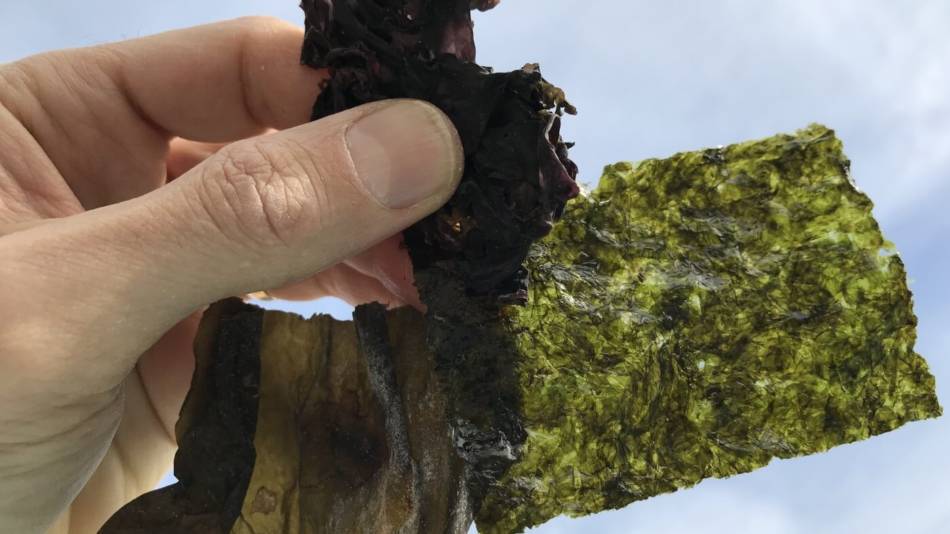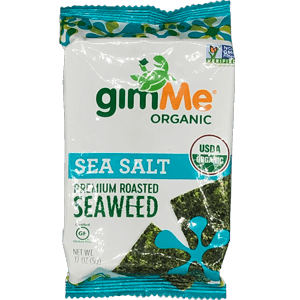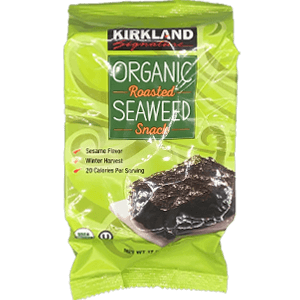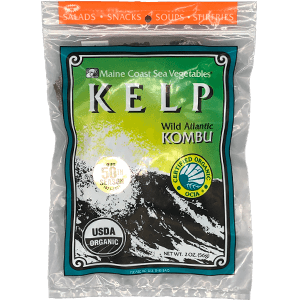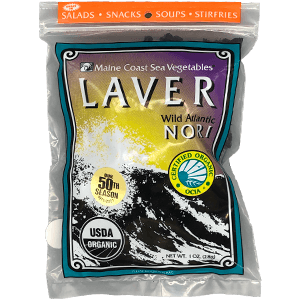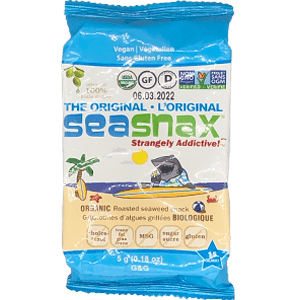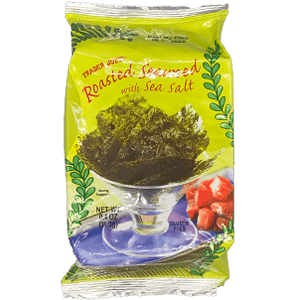Summary
-
What are the benefits of seaweed snacks?
Dried seaweed foods typically have a mild seaweed flavor and consist of mostly fiber (about two thirds of the carbohydrates in seaweed are fiber), protein, and, if roasted in oil (as with most seaweed "snacks"), some unsaturated "good" fat. Seaweed foods are also vegan-friendly. Seaweed also provides sodium, the amount of which depends on the type of seaweed, although roasted seaweed snacks invariably have added salt, making them mildly salty.
What sets dried and roasted seaweed apart from most other foods is a significant amount of iodine. Adults need 150 mcg of iodine per day. A small (5 gram) serving of dried or roasted seaweed typically provides at least 50 mcg, or one third of the adult daily requirement, and can provide much more — sometimes too much, as discussed below. Seaweed also provides small amounts of iron, potassium, and other vitamins and minerals but typically less than 5% of the daily requirement per serving.
Seaweed such as kelp has also been promoted for increasing energy and for weight loss. This has not been clinically proven, but such effects are possible if the iodine treats underlying hypothyroidism due to iodine deficiency (See What It Does). -
What are the risks of seaweed snacks? Can you eat too many?
Eating too many seaweed snacks or large portions of seaweed foods can be dangerous. As noted above, seaweed, particularly kelp, can provide too much iodine, which increases the risk of thyroid problems and other adverse effects (see Concerns and Cautions). The amount of iodine per day that one can safely tolerate ranges from 200 mcg in young children to 1,100 mcg in adults. Among products we tested, we found that a suggested serving provided about 66.5 mcg to more than 18,000 mcg!
All of the products contained the heavy metals lead, cadmium, and arsenic at levels often exceeding tolerable upper intake levels. It is no secret that there are heavy metals in seaweed snacks, in fact, many have warning labels indicating that they may pose a risk of reproductive harm or cancer (typically due to lead), as this is a legal requirement for products sold in California under its Prop 65 law. However, labels don't tell you how much lead or other heavy metals are present in a product. We even found that one product without a warning was more contaminated than one with a warning. Our report shows exactly how much iodine and heavy metal contamination we found in each product (see What CL Found). What is the best seaweed snack or food?
Among the dried seaweed products we tested, four out of six exceeded limits for iodine and/or heavy metals -- some more than others. Only two products were "Approved" and, among these, we chose one Top Pick that was not only safe, but less expensive than the other and, in our opinion, better tasting. Even with our Top Pick, however, we advise not eating more than one serving per day to avoid exceeding limits for iodine and heavy metals.

